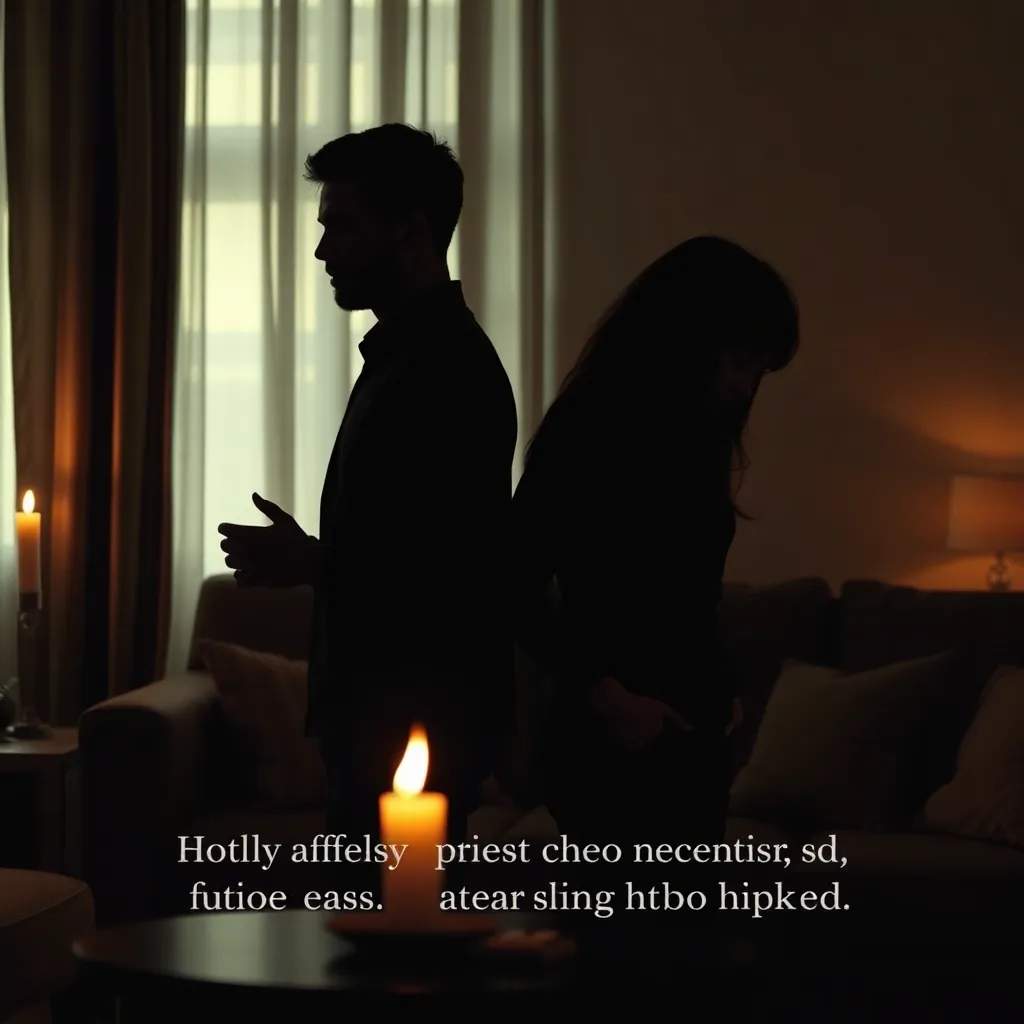In the delicate tapestry of relationships, recognizing the threads of abuse can be incredibly challenging, especially when they’re hidden under layers of justification. Many people find themselves questioning their experiences, wondering if they are overreacting or if their feelings are valid. Understanding the subtle signs that justify abuse is crucial, as it can empower individuals to reclaim their narratives and seek healthier dynamics.
It’s common to feel confused and isolated when faced with the justifications that often accompany abusive behavior. These justifications can sometimes blur the lines, making it difficult to discern where the boundaries should truly lie. By shedding light on these hidden signs, we aim to provide clarity and support for those navigating these complex emotional landscapes.
In this article, we will explore ten hidden signs that might indicate an abusive relationship is being unjustly justified. Our goal is to provide you with insights that resonate with your experiences and equip you with the knowledge to recognize and address these patterns. Together, let’s embark on a journey towards understanding and healing, offering you the tools to build relationships founded on respect and genuine care.
1. Gaslighting to Shift Blame

In many relationships, *gaslighting* is used as a subtle yet powerful tool to shift blame. Imagine being told that what you remember isn’t true or that you’re overreacting, gradually leading you to doubt your own *perceptions*.
When you find yourself constantly second-guessing your own feelings or experiences, it might be a sign of *emotional manipulation*. The abuser often twists narratives to make themselves the *victim*, compelling you to apologize for things you haven’t done.
Consider a situation where your partner frequently insists that their hurtful actions are your fault because of something you did or said. This tactic not only shifts the blame but also places an unfair burden on you to *repair* the relationship.
Experts assert that recognizing the patterns of *gaslighting* is crucial for breaking free from this cycle. By acknowledging these behaviors, you can begin to reclaim your reality and regain your emotional strength.
Remember, a healthy relationship is built on mutual respect and shared understanding, not on manipulation and blame. The more you understand these dynamics, the better equipped you’ll be to protect your emotional well-being.
2. Victim Blaming in Conflicts

When conflicts arise, an abusive partner may subtly engage in victim blaming to deflect responsibility. They might suggest that your actions or words have provoked their behavior, leaving you feeling at fault for their reactions.
Consider a scenario where a partner says, “I wouldn’t have gotten angry if you hadn’t questioned me.” In such situations, the onus of their aggression is unfairly shifted onto you, which is a classic example of manipulative blame-shifting.
Experts note that this tactic can cause you to internalize guilt, affecting your self-esteem and perception of the relationship. It’s essential to recognize that you are not responsible for someone else’s abusive actions, regardless of the circumstances.
To navigate such situations, try to maintain a journal of incidents and your feelings, helping you to identify patterns over time. Engaging in self-reflection can bring clarity and empower you to set healthier boundaries.
Remember, a strong relationship thrives on mutual respect and accountability. If you’re consistently blamed for issues you didn’t cause, it might be time to reassess the relationship’s dynamics.
3. Minimizing Your Emotions

When someone consistently minimizes your emotions, it can feel as if your feelings are being dismissed or invalidated. This often takes the form of statements like “You’re overreacting” or “It’s not a big deal,” which can leave you questioning your own reality.
In a healthy relationship, both partners should feel that their emotions are valued and respected. If your partner frequently trivializes how you feel, it may be a tactic to avoid taking responsibility for their actions and to maintain control in the relationship.
Imagine sharing something that deeply upset you, only for your partner to respond with a shrug and a dismissive “You’re too sensitive.” Over time, these interactions can lead to self-doubt and a diminished sense of self-worth, making it crucial to recognize these patterns early.
Experts suggest that minimizing emotions is a subtle form of emotional abuse, designed to silence and suppress. Practicing open communication where both partners feel heard and validated is essential for a healthy dynamic.
By acknowledging and addressing these behaviors, you can work towards a relationship that is not only supportive but also emotionally fulfilling. Remember, your feelings are valid, and they deserve to be treated with care and understanding.
4. Public Humiliation Acts

Public humiliation acts as a subtle but powerful form of control in relationships. You might find your partner making a joke at your expense in front of friends, masking it as humor. This behavior erodes your self-esteem, making you question your worth. It’s crucial to recognize that these moments are not just jokes—they’re intentional tactics to undermine your confidence.
Consider a scenario where your partner shares an embarrassing story about you at a party. Laughter from others may make you feel complicit, but the discomfort lingers. Such incidents create an environment where you feel belittled and insignificant. Recognizing this pattern is the first step toward addressing the issue.
Experts highlight that public humiliation is often used to establish dominance. According to relationship counselor Dr. Emily Hart, these acts can lead to a gradual loss of self-identity. It’s essential to communicate your feelings and establish boundaries with your partner. Remember, a caring partner will respect your boundaries and avoid repeating hurtful behaviors.
Instead of internalizing the embarrassment, use it as a cue to reassess your relationship dynamics. Having an open conversation about how these actions affect you can pave the way for healthier interactions. If your partner dismisses your concerns, it may be time to evaluate the relationship’s future.
Ultimately, standing up against public humiliation is crucial for your self-respect and emotional health. By addressing these behaviors early, you can foster a relationship built on mutual respect and understanding. Remember, you deserve a relationship where you feel valued and secure.
5. Isolation from Support Networks

In many abusive relationships, an individual might find themselves slowly being pulled away from their support networks. This isolation is often subtle at first, with the abuser making excuses or creating situations that limit contact with friends and family. Over time, the victim may realize they’ve unwittingly become cut off from those who could offer emotional support and guidance. This tactic ensures that the abuser maintains control by reducing external influences that could empower the victim to seek help.
Consider a scenario where a partner insists on spending every weekend together, gradually discouraging social outings or family visits. Though it may appear as a gesture of love and commitment, it often masks a deeper intent to control and isolate. This slow erosion of a person’s social network can leave them feeling trapped and alone, making it harder to break free from the abusive cycle. Recognizing this pattern is crucial for maintaining autonomy and seeking support.
Experts highlight that maintaining connections with a trusted circle is vital for mental well-being and resilience. Dr. Lisa Feldman, a psychologist specializing in relationship dynamics, emphasizes the importance of nurturing these bonds, even in the face of pressure to withdraw. If you find yourself justifying why you haven’t seen your family or friends in a while, it might be time to reassess the underlying reasons. Re-establishing these connections can provide the strength needed to confront difficult situations.
Ultimately, the goal is to ensure that your relationships, especially those with loved ones, remain a source of support and encouragement. If you notice your world shrinking and your connections weakening, take it as a sign to reach out and reconnect. Cultivating a strong support network is not just about maintaining personal freedom—it’s an essential component of a healthy and balanced life. Understanding these dynamics equips you to safeguard your well-being and maintain strong, healthy relationships.
6. Constant Criticism Disguised as Concern

Criticism can often be cleverly disguised as concern, making it difficult to identify as abusive. When someone consistently points out your flaws under the guise of caring for you, it can slowly erode your self-esteem and sense of worth.
Imagine a partner who frequently comments on your appearance, saying they’re only doing it for your own good. Over time, these seemingly well-intentioned remarks can chip away at your confidence, leaving you feeling inadequate.
Dr. Emily Carter, a renowned psychologist, emphasizes that constant criticism can be a form of control. She suggests that abusers may use this tactic to make you doubt your own decisions and rely more heavily on their judgment.
To address this, try discussing how these comments affect you with your partner. A supportive partner should be willing to have an open conversation and adjust their behavior to make you feel valued and respected.
Recognizing this pattern is crucial for maintaining your emotional well-being. By understanding and addressing these criticisms, you empower yourself to foster healthier communication and stronger boundaries in your relationships.
7. Emotional Manipulation Tactics

Emotional manipulation often hides behind a facade of care, making it difficult to recognize. For instance, a partner might use your vulnerabilities against you, subtly shifting blame to make you feel guilty for their actions. This tactic creates a cycle of dependency, where the manipulated partner constantly seeks approval and reassurance. In such situations, identifying the emotional triggers can help in breaking free from the manipulative cycle.
Another common tactic is the use of exaggerated emotional responses to control behavior. A manipulator might overreact to small issues to make you feel responsible for their emotional state, leaving you walking on eggshells. By doing so, they create a power imbalance, ensuring they remain in control. Setting boundaries and maintaining your emotional independence are crucial steps in restoring balance.
Gaslighting is a particularly insidious form of emotional manipulation that distorts your perception of reality. An abuser might deny previous conversations or events, making you question your memory and judgment. This can lead to self-doubt, further entrenching the manipulator’s control. Trust in your own experiences and seek support from trusted friends or professionals to counteract these effects.
Recognizing these tactics is the first step toward regaining control over your emotional well-being. When you feel manipulated, pause and assess the situation objectively, considering whether your feelings are being validated. Open communication and seeking external perspectives can provide clarity and support.
By understanding and addressing emotional manipulation, you can nurture healthier, more authentic relationships.
8. Excuses for Aggressive Behavior

When someone repeatedly makes excuses for their aggressive behavior, it can be a subtle but significant warning sign. They might blame stress at work or a difficult childhood, attempting to justify actions that are otherwise unacceptable. In relationships, it’s common to face stressful situations, but turning that stress into aggression isn’t healthy or justified. Instead of accepting these excuses, it’s crucial to recognize them as a pattern of harmful behavior that needs addressing.
Consider a partner who often says, “I didn’t mean to yell, but you know how stressed I am.” This can be a way to shift responsibility away from themselves and onto external factors. While it’s natural for stress to affect mood, it shouldn’t serve as a blanket excuse for harmful actions. Understanding this distinction is key to nurturing a healthy relationship where both partners feel safe.
Experts often suggest that consistent aggressive behavior followed by excuses is a red flag. According to relationship therapists, such patterns can erode trust and create an unhealthy dynamic. It’s essential to communicate openly about how these behaviors affect you and seek solutions together. Without addressing these patterns, the risk of escalation remains high.
Reflecting on these excuses, it’s vital to assess how they impact your emotional well-being. If you find yourself constantly walking on eggshells, it might be time to reevaluate the relationship’s dynamics. Concluding this section, remember that a loving partnership should be a source of comfort, not fear or anxiety.
9. Frequent Mood Swings Excused

In many relationships, an individual may experience frequent mood swings from their partner that are often excused away. These sudden changes in mood can be confusing and unsettling, leaving the other partner feeling like they’re walking on eggshells.
At times, these mood swings are dismissed as just part of their partner’s personality or attributed to being under stress. While stress is a common part of life, using it as a blanket excuse for erratic behavior can be harmful.
Consider Sarah, who is frequently left bewildered by her partner’s drastic mood changes, which are often explained away as mere work stress. Her partner’s inability to manage their emotions effectively places an unfair burden on her, impacting her mental and emotional health.
Experts suggest that unpredictable mood swings can be a red flag if they are recurrent and unaddressed. It’s crucial to acknowledge that everyone is responsible for managing their own emotions without projecting them onto others.
Understanding and addressing the root causes of such behaviors can lead to a healthier relationship dynamic. Open and honest conversations about emotional health can prevent excuses from becoming a pattern.
10. Jealousy Framed as Protection

Jealousy can sometimes be cleverly disguised as a form of protection in relationships. When a partner frequently questions your actions or monitors your whereabouts under the pretense of caring, it might be a sign of something more concerning.
Consider the scenario where a partner insists on knowing your every move because they claim to be worried about your safety. This behavior, while initially flattering, can quickly turn into a way to exert control and limit your freedom.
Experts often highlight that true protection in a relationship involves trust and respect, not surveillance and suspicion. When jealousy is framed as protectiveness, it can create an unhealthy dynamic where one partner feels stifled and the other justified.
To address this, setting clear boundaries and communicating openly about feelings of trust and independence is crucial. Discussing these issues with a professional or seeking couples therapy can help in understanding and resolving underlying insecurities.
Ultimately, a relationship should foster a sense of security and freedom, where both partners feel valued and trusted. Recognizing and addressing jealousy framed as protection can pave the way for healthier and more fulfilling connections.
Conclusion: Creating Beautiful Outdoor Spaces
In navigating the complexities of relationships, it’s crucial to recognize the subtle signs that might justify abusive behavior. This article delves into ten key indicators, such as excessive jealousy disguised as care, controlling behavior under the guise of protection, and constant criticism masked as honesty. By understanding these signs, you can better assess your relationship dynamics and take proactive steps toward a healthier, more supportive partnership.
An immediate action you can take is to open a dialogue with a trusted friend or counselor to discuss your relationship concerns. This step not only offers you a fresh perspective but also begins the journey towards a more balanced and respectful relationship environment.
To ensure that you have these insights at your fingertips, save or bookmark this article. By doing so, you’ll have a valuable resource ready whenever you need to revisit these pivotal concepts.
Looking ahead, remember that true relationship success stems from mutual respect, empathy, and understanding. By staying informed and vigilant, you empower yourself to cultivate a loving environment that thrives on genuine connection and growth. Embrace this path with confidence, knowing that your relationship can flourish with the right knowledge and actions.
